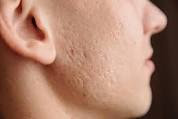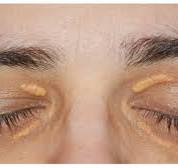Revitalize Your Skin: Exploring the World of Chemical Peels
In the quest for radiant, youthful skin, many individuals turn to chemical peels as a transformative skincare treatment. Chemical peels offer a non-invasive yet highly effective solution for addressing a variety of skin concerns, from acne scars and hyperpigmentation to fine lines and uneven texture. In this comprehensive blog, we'll dive deep into the world of chemical peels, exploring their benefits, types, process, aftercare, and considerations to help you achieve your skincare goals with confidence.
**Understanding Chemical Peels:**
Chemical peels are cosmetic procedures that involve the application of a chemical solution to the skin, which causes exfoliation and peeling of the outermost layers. This process stimulates cell turnover, revealing fresh, new skin underneath and promoting a smoother, more even complexion. Chemical peels can be tailored to target specific skin concerns and are available in varying strengths, from superficial to deep.
**Benefits of Chemical Peels:**
The benefits of chemical peels are manifold and include:
1. **Improved Skin Texture:** Chemical peels help to exfoliate the skin, removing dead cells and promoting the growth of new, healthy skin cells for a smoother, softer texture.
2. **Even Skin Tone:** Chemical peels can reduce the appearance of hyperpigmentation, sun damage, and dark spots, resulting in a more even complexion.
3. **Reduced Acne and Acne Scars:** Chemical peels can unclog pores, reduce oil production, and minimize the appearance of acne scars, making them an effective treatment for acne-prone skin.
4. **Diminished Fine Lines and Wrinkles:** Chemical peels stimulate collagen production, which can help to reduce the appearance of fine lines, wrinkles, and other signs of aging.
5. **Enhanced Skincare Absorption:** By removing dead skin cells and debris, chemical peels allow skincare products to penetrate more deeply and effectively into the skin, maximizing their benefits.
**Types of Chemical Peels:**
Chemical peels are classified based on their depth of penetration and the type of acid used. The three main types of chemical peels are:
1. **Superficial Peels:** Also known as lunchtime peels, superficial peels use mild acids such as alpha hydroxy acids (AHAs) or beta hydroxy acids (BHAs) to exfoliate the outermost layer of the skin. These peels require little to no downtime and are suitable for treating minor skin concerns.
2. **Medium Peels:** Medium peels penetrate more deeply into the skin using acids such as glycolic acid or trichloroacetic acid (TCA). These peels target the epidermis and upper dermis, making them effective for treating moderate skin imperfections such as fine lines, acne scars, and pigmentation issues.
3. **Deep Peels:** Deep peels penetrate the deepest layers of the skin using strong acids such as phenol. These peels provide dramatic results but require longer downtime and carry a higher risk of complications. They are typically reserved for treating severe skin conditions and are performed under medical supervision.
**The Chemical Peel Process:**
The chemical peel process typically involves the following steps:
1. **Consultation:** During an initial consultation, a skincare professional will assess your skin type, concerns, and goals to determine the most appropriate type and strength of chemical peel for your needs.
2. **Preparation:** Before the peel, your skin will be cleansed and prepped to remove any makeup, oil, or debris. Depending on the type of peel, you may also need to discontinue certain skincare products or medications in the days leading up to the treatment.
3. **Application:** The chemical peel solution is applied to the skin using a brush or cotton pad and left on for a specific amount of time, depending on the type and strength of the peel.
4. **Neutralization:** After the desired amount of time has elapsed, the peel solution is neutralized with water or a neutralizing solution to stop the chemical reaction.
5. **Post-treatment Care:** Following the peel, your skin may appear red, tight, or slightly swollen, and you may experience mild peeling or flaking in the days following the treatment. It's essential to follow your skincare professional's instructions for post-treatment care, which may include gentle cleansing, moisturizing, and sun protection.
**Considerations and Aftercare:**
While chemical peels are generally safe and effective when performed by a qualified skincare professional, there are some considerations and aftercare tips to keep in mind:
1. **Sun Protection:** It's crucial to protect your skin from the sun following a chemical peel, as it may be more sensitive to UV radiation. Wear sunscreen with a high SPF, avoid direct sun exposure, and wear protective clothing and accessories such as hats and sunglasses.
2. **Avoid Irritants:** In the days following a chemical peel, avoid using harsh or irritating skincare products, exfoliants, or treatments that could further sensitise the skin.
3. **Patience is Key:** Results from chemical peels may take time to fully manifest, with optimal results typically visible after a series of treatments. Be patient and consistent with your skincare routine to achieve the best outcomes.
4. **Follow-up Treatments:** Depending on your skincare goals, you may benefit from regular maintenance treatments or follow-up appointments to maintain the results of your chemical peel.
**Conclusion:**
Chemical peels offer a powerful solution for addressing a wide range of skin concerns and achieving a radiant, rejuvenated complexion. Whether you're seeking to improve skin texture, reduce hyperpigmentation, or diminish signs of aging, there's a chemical peel formulation suited to your needs. By understanding the benefits, types, process, and aftercare of chemical peels, you can embark on your skincare journey with confidence, knowing that brighter, smoother skin awaits. Consult with a skincare professional to explore your options and take the first step towards revitalizing your skin and enhancing your natural beauty.
Call now
on our Mobile 8669086098 to book an appointment
Kindly visit our website Chemical Peeling to know more.
#chemicalpeel #skincare #acnescar #hyperpigmentation #skintexture #skincare
#skinrejuvenation #skindoctor #dermatologist




Comments
Post a Comment